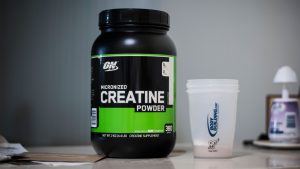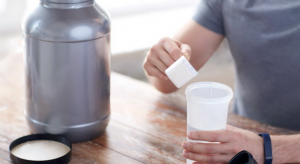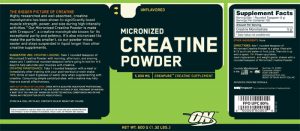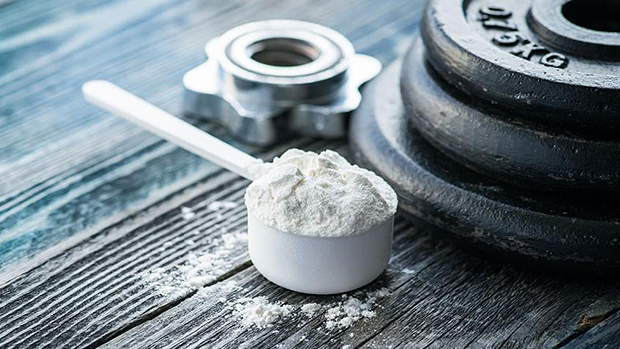Creatine is naturally made by our kidneys and liver. It is carried throughout the body in the blood and provides energy to your muscles.
Your body makes most of the creatine you need, but it is also found in meat, poultry and fish. Creatine supplements have a much higher dose than what is found in foods.
What does creatine do and how does it work?
The effect of creatine appears gradually with regular use, as it tends to accumulate in the tissues of the body (primarily in the muscles). The main function of creatine is to provide the body with energy during physical exertion. During strength training, creatine energy is first used, and only then – the energy of ATP, glycogen and other nutrients.
Among other things, this supplement helps neutralize acids formed during exercise – this reduces muscle fatigue. Muscles from creatine become more voluminous, as it increases the amount of fluid stored in the sarcoplasm. Total weight gain with regular use of this supplement can be up to 3-5 kg.

Can this supplement help me play sports better?
Creatine has been shown to improve how well a person can play sports that require short bursts of energy. You may benefit from this supplement if you do activities like:
- Running or biking sprints
- Team sports like hockey, football and basketball that require short power bursts
- Weight-lifting and strength-training
If you participate in endurance sports like long-distance running, this supplement may not give you a lot of benefit.
Are creatine supplements safe?
Research on supplements have not shown any health risks in healthy adults when taken in recommended amounts. However, the effect of long-term use of this supplement is not known.
How much creatine should I use?
As with all supplements, getting more than you need is not helpful. The amount of this supplement that is shown to help with sport performance is:
- 15 to 25 grams per day for 5 to 7 days as the starting dose
- 2 to 5 grams per day afterwards for the next few months

What do I look for on the primobolan 400mg/week results package?
Look for a creatine supplement that contains creatine monohydrate. This is the form of creatine that has been studied the most and is the recommended type to use. This supplement combined with a carbohydrate (like dextrose or other sugars) is best absorbed by your muscles.
If you are buying a supplement, look for a natural product number (NPN) or drug identification number (DIN). These numbers tell you if the product has been reviewed by Health Canada and is safe to use.

Creatine supplements are not recommended for anyone under 18 years of age as well as pregnant or breastfeeding women. Speak to a health professional before taking supplements. Always read and follow the instructions on the package when taking this supplement .
Creatine: Cons and Possible Harm
Today this supplement is the most studied sports nutrition. Numerous experiments and scientific research did not reveal any side effects for a healthy person when they were taken. Regular consumption of doses up to 3 g of supplement per day is categorized as the “minimal risk of side effects for health”.
Despite all the safety of creatine, people suffering from chronic diseases (primarily asthma and various food allergies), as well as pregnant women and people who have undergone serious surgery, are advised to consult with their physician before taking this supplement.
